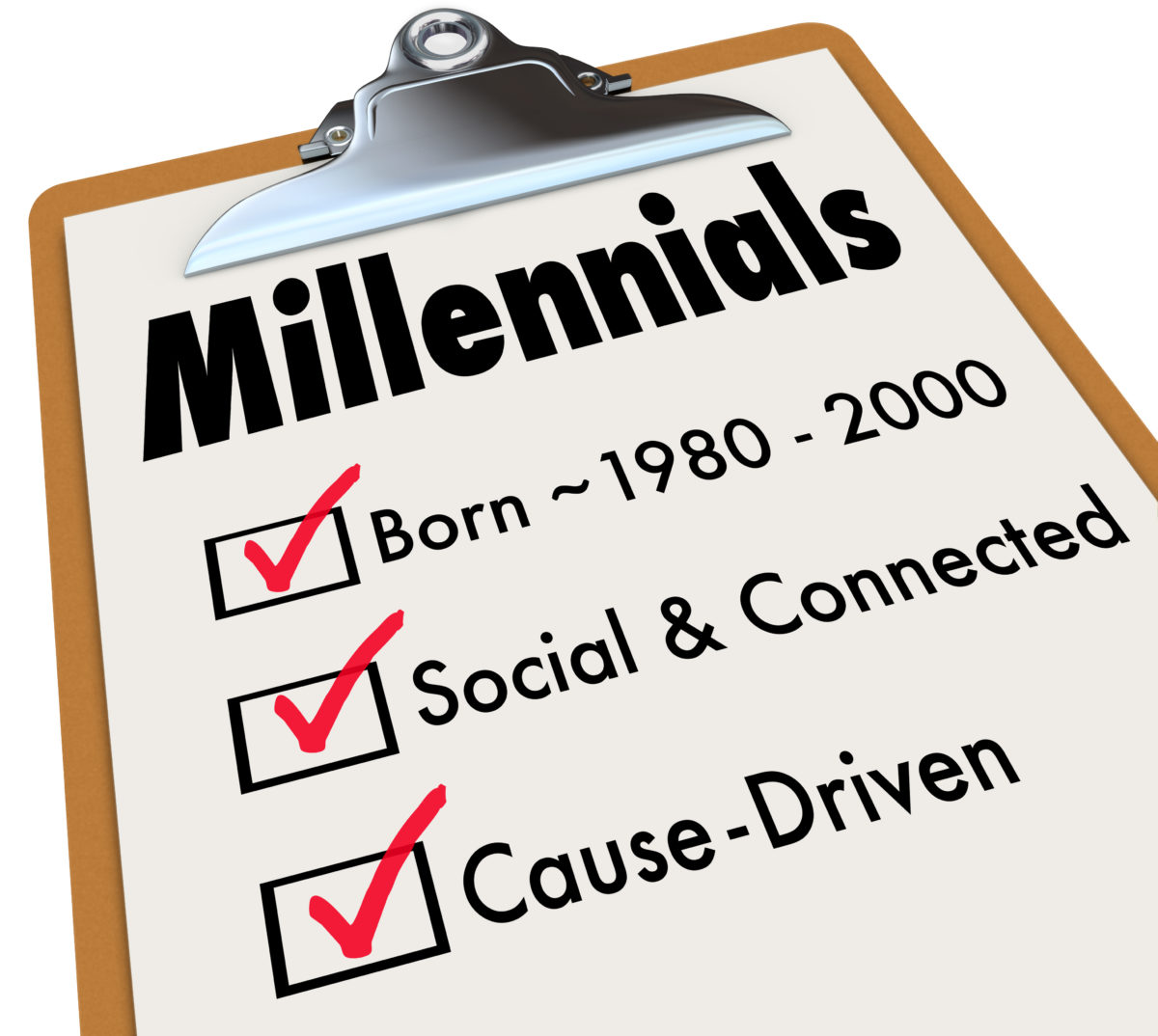THE MILLENNIAL ESTATE PLAN
For our generation, the topic of estate planning evokes thoughts of mansions, yachts, and the oft maligned “trust fund baby.” Others tend to think of their parents or grandparents, or the need for Medicaid planning for a nursing home. This is true for personal friends of mine. When I talk to friends and others my age about estate planning, the most popular responses I get are something like “I’m buried in debt and don’t have anything to plan for anyway” or “I don’t need to worry about that until I’m in my 40s or 50s.” The reality however, is that everyone needs an estate plan, regardless of their age, wealth, or marital status.
As Millennials, despite the reputation of having a laid back/”go with the flow” attitude, we actually plan for everything. We have to-do lists for our personal lives and work lives, we use calendars and planners to schedule our days…we even meal prep for an entire week at a time. But though we have most things in our lives planned out, the one thing we don’t do is estate plan. As the generation that goes to these extremes to make sure we account for everything, shouldn’t we plan for what happens if tragedy strikes? My goal through this article is to raise awareness of the importance of, and the need for our generation to have even the most basic estate plan. That then leads to the question:
WHAT IS ESTATE PLANNING?
As stated above, the phrase “estate planning” evokes certain thoughts and statements that tend to skew our understanding of just what an estate plan is, who needs one, and what an estate plan does. At its core, estate planning is a means of distributing your assets and property to who you want, and ensure that your values, not just the wishes for your valuables, are honored.
Yes, an estate plan outlines what you want to happen with your property, and allows you to designate who you want to receive your property upon your passing, however, a good estate plan does much more than that; it will account for your religious and/or moral values and beliefs, allow for planning for medical incapacity, among other things. For Millennials, while a will and possibly a simple trust are necessary for distributing our property, the following documents are just as important, and allow you to convey your values and medical wishes, as well as providing for those times that we may become temporarily, or even permanently, incapacitated:
- Health Care Proxy – A document that allows you to name a person (proxy) to make health care decisions on your behalf, when you are unable to do so, even if only temporarily, based on your wishes and directives;
- Living Will – The document where you can express your end of life medical wishes and directives to provide guidance should you be unable to communicate the decisions yourself;
- Durable Power of Attorney – A document where you name an Agent (also known as an Attorney in Fact) typically to manage your finances and make other decisions that you specifically allow, should you become incapable of managing the same. A Durable Power of Attorney is not valid after death.
YES, YOU HAVE AN ESTATE, AND NO, PLANNING IS NOT JUST FOR YOUR PARENTS OR THE RICH
Let’s face it, no matter your age, gender, race, or net worth, thinking about dying and what happens to what and who we leave behind is not a pleasant topic. But the reality is that unfortunately, we don’t know how long we will live, or whether we will get sick or be the victim of a tragic accident. This is a fact of life…some things are just out of our control, and we need to make sure that we can deal with and plan for the unknown while we still have the ability to do so. Many Millennials understand this, but nevertheless do not believe they even have an estate to plan for, but the fact is that, yes, we do. I do. My friends do. You do. This, then, begs the question – what does your estate consist of?
Maybe you don’t own any real estate yet or have many investments, but odds are you own stuff, and have a bank account. That stuff you own, regardless of what it is (movies, cds, electronics, furniture, jewelry, car, etc.), has a value, and is tangible personal property, that can be distributed as you wish. Further, the money in your bank accounts (checking, savings, etc.), and your retirement accounts, make up more of your estate. However, it’s not just your material property and money that make up your estate – your morals, values, beliefs, and medical wishes, make up arguably, an equally important part of your estate.
WHAT DOES A MILLENNIAL ESTATE PLAN LOOK LIKE?
Every person, couple, family, and situation is different, and everyone has different goals. Therefore, there is no one size fits all estate plan. As Frank Marzella, a financial planner at Brookline Bank stated:
“[w]hat estate planning means to you specifically depends on who you are. Your age, health, wealth, lifestyle, life stage, goals, and many other factors determine your particular estate planning needs. For example, you may have a small estate and may be concerned only that certain people receive particular things. A simple will is probably all you’ll need. Or, you may have a large estate, and minimizing any potential estate tax impact is your foremost goal. Here, you’ll need to use more sophisticated techniques in your estate plan, such as a trust.”
As Millennials, planning for the estate tax, or creating complex trust documents is not essential at this time. The goal should be to ensure our wishes are carried out as we desire, and to provide guidance and a little bit of comfort for our families and loved ones in case something tragic should happen. At the very least, everyone should have:
- A Will;
- Health Care Proxy;
- Living Will, and;
- Durable Power of Attorney.
Some estates may necessitate some sort of trust to better meet their goals. However, for most Millennials, a quick, simple, and relatively inexpensive estate plan including the above documents, will be sufficient to provide asset protection and guidance for loved ones.
Further, although not a product we provide as lawyers, we stress the importance of having a life insurance policy. Josh O’Gara from Colonial Life has stated, “[a] life insurance policy is a priority, and most [Millennials] know they need it, but not why. Insurance is the least expensive when you’re least likely to use it (i.e. young and healthy). Taking the proper steps when you’re younger can ensure that you will have much lower insurance costs for the rest of your life through conversion options or additional purchase benefits.” You don’t need to have a million-dollar policy, but something to cover your private student loans, and the cost of burial, funeral, or other services is critical. Dying is not inexpensive, and for the cost of a few cups of coffee a week, you can ensure that you do not bankrupt your family with the debts and expenses you leave behind.
WHAT HAPPENS IF YOU DO NOT PLAN?
If you pass away without any estate planning documents (this is called dying “intestate”), you lose all control over your property, and the State will decide for you what happens to your property (The Massachusetts intestate succession law is codified in G.L. c. 190B, Article II.) Think of it this way, your estate plan isn’t really for you. Yes, it is based on what assets and property you own, what you want to happen to them, and what your medical wishes and directives are, but ultimately its main purpose is to save your family and loved ones the stress, expense, time, and hassle of having to go to court, possible fight among themselves, and have a judge make a final decision on what he or she thinks is best to do, when your family and loved ones should be focusing on grieving and healing. If something were to happen, your loved ones and family would be forced to make difficult decisions, and go through a legal procedure that could take over a year to resolve, and possibly cost several thousand dollars.
Probate, simply stated, is a process whereby a probate court judge will either review a will and appoint the personal representative (commonly referred to as the executor) as outlined in the will to ensure that the decedent’s wishes are followed, or if there is no will, the judge will make a determination on his or her own as to what will happen with your property. Of course, the judge will attempt to make the most fair and equitable decision(s), but wouldn’t you rather outline what you want to happen and save your family the time, expense, and headache? Although a will alone does not avoid probate, having one can expedite the procedures, and save substantial expense. If avoiding Probate is a goal of yours, it can be done by using a living trust, and naming a beneficiary for the trust property. For a brief explanation on different types of trusts, check out Attorney Rob Pellegrini’s article, Is Estate Planning Right for You?.
It has become more common to find younger people having children, living together, and not getting married for one reason or another. If something were to happen, and you do not have any estate planning documents, what you may assume would happen, probably won’t. That is because while your family may get along, and you believe that your significant other gets everything you have, the intestate laws say otherwise. For example, you may not get along with one or both of your parents, and they may end up with a portion of your property and money. What would happen in any given situation requires a personalized review of an individual scenario, but once explained, it is usually not what someone expects or wants to happen.
Further, from a medical standpoint, if you do not have any advanced directives as to what you want to happen if you become disabled or incapacitated, then there will undoubtedly be a battle between parents and a significant other over who has the right to make a decision. Remember the Terri Schiavo case? A simple plan to outline your wishes, will provide guidance and certainty for your loved ones, and save them from fighting or having to make the difficult decisions.
While you will more than likely not be aware of anything that is going on in any of these examples because of either an incapacity or worse, these are exactly the situations that you can plan for and prevent by having even the most basic of an estate plan. We at PK Boston Law provide a thorough and personalized review of your estate, on an individual basis, and will discuss your goals and what options are best for you to meet those goals.
For a personalized review of your current estate, contact a qualified attorney at PK Boston to discuss estate planning options, and determine what plan will be best for you and your family.




